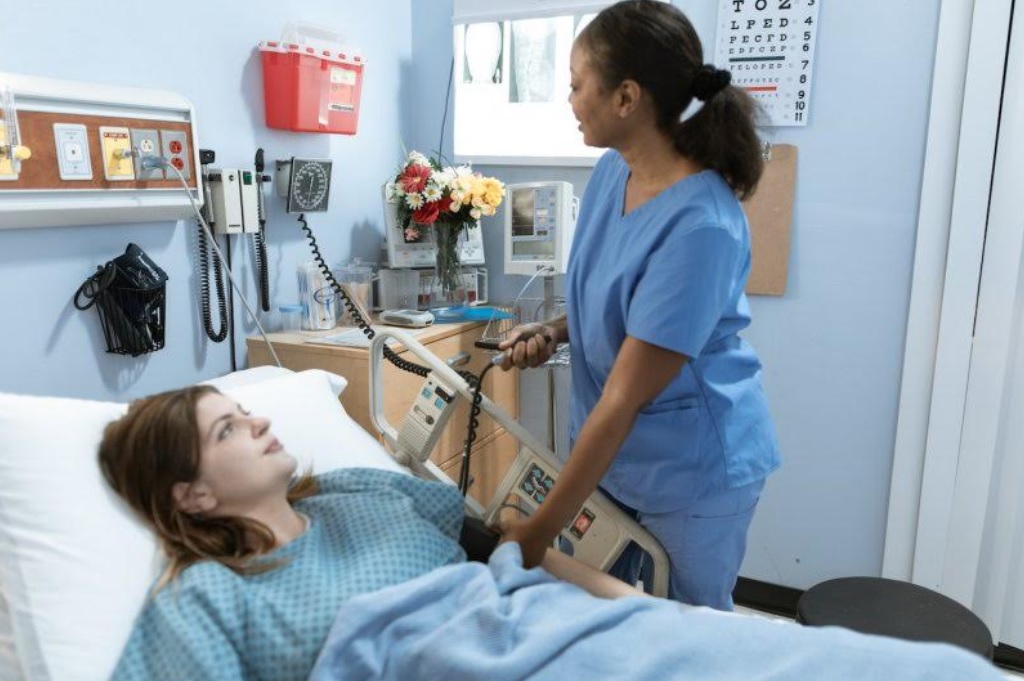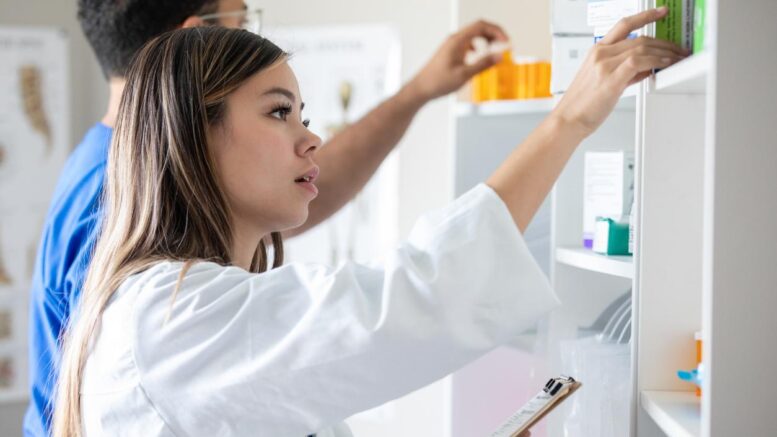Students who are undertaking a medical degree have blocks of time factored into their course for clinical placements. During these times, they will be assigned work in a social or healthcare setting to enrich their education. Placements offer a unique learning opportunity for students. Primarily, they have a chance to gain practical experience and learn about various settings and specialties. Students can also see how interactions between medical professionals and patients take place on a ward or in a clinic. Although there are various models of clinical placement, each is designed to equip participants with a deeper knowledge of healthcare and the skills that any newly qualified health professional needs.
Why are placements so important?
During a placement, nursing and midwifery students, as well as trainee physicians, can put their knowledge into practice and attain the competencies they will need for registration. These are important experiences for students because they provide an insight into what life is like in wards and in surgeries. Moreover, students can learn from the reasoning, advice and actions of qualified people.
By giving students the space to grow and develop professionally, placements prepare them for the future. Depending on the setting, there will be opportunities to investigate patient histories, conduct physical examinations and liaise with the care team. Alongside practical skills, placements give students access to a network of healthcare teams and individuals. Throughout each placement, they have the chance to ask members of staff about their work and the specialty they trained for.
What are the outcomes of an effective clinical placement?
The most effective placements will always promote learning, but they should also give students the chance to learn more about their chosen careers in depth.
Students understand more about their future industry
By working alongside a range of different colleagues, trainees can recognize that there are many, diverse career opportunities in health environments. Students will become familiar with the ever-changing nature of healthcare and be comfortable with the more unpredictable situations that can occur. As part of a placement, they will start to appreciate the multi-professional approach to patient care and learn how teams work together effectively. Finally, students should also feel valued and supported by their colleagues.
Practical experience in real-world settings
Students learn to provide an extensive range of treatments and care to patients, under the supervision of other members of staff or their mentor. If they are provided with a mentor, this person will work hard to create a good partnership and prepare in advance for their role. When a student wants to improve or develop a specific learning objective, they can use the placement to do so in a clinical context. Furthermore, they can test out different learning approaches, such as inquiry, experimental or problem-based, and see how these unfold in a real-world setting. As well as improving their practical expertise, students will cultivate better interpersonal and IT skills, as information technology is a vital part of modern medical care.
How can you get ready for your first placement?
Weeks before your first clinical placement, it is important to start preparing yourself for the experience. Think about what you already know and what you hope to get out of the placement. Consider what kind of preparations your college needs to make. Some colleges are more hands-on than others when it comes to placing their medical students. At Elmhurst, the online MSN programs have a clinical placement team that locates the best places for students to gain experience in their local community. This means that people on the Master’s Entry in Nursing Practice (MENP) program and those on other courses can concentrate on their academic work, rather than trying to organize an appropriate placement.

Know what to expect on your first day
On your first day, having an idea of what will happen can help you to manage any nerves and concerns. Primarily, it will help you to find out the specific learning outcomes. However, you will be given an introduction by the provider, so you can always have a few questions prepared if you are unsure. They will familiarize you with the team you’ll be working with and also give you information on accessing the facility’s services. As well as being given access to the building’s IT system, you’ll be shown around the rest areas and changing places. Once you’ve settled in, you’ll be provided with a ward access card so that you can come and go as you please.
What will be expected of you?
Your university and the facility supplying your placement have responsibilities, but as a student, you also do. Start by reading your student handbook to understand more about what is expected of you and what you’ll need to do in order to meet the placement requirements successfully. This handbook might also include details on how you’ll be assessed – just be certain to focus on your specific program. You should also understand what the purpose of this placement is and be clear about what the provider expects of you. Usually, this will be that you are there to learn more about midwifery or nursing, etc. Finally, the facility will expect you to maintain the confidentiality of patients and the unit on which you work.
Maintain a professional attitude
Feeling excited before your first placement is natural and it’s also a good sign for the future, but don’t lose sight of your professionalism. You may well be thrown into the deep end in a busy clinic or hospital and be expected to apply all of that pharmaceutical, anatomical and physiological knowledge in your head. To make the best impression, be well prepared for the big day. First of all, you should know where you are going and how to get there. Many hospitals are like small towns and navigating around can be a challenge. Note down the ward you are reporting to and the person who is your contact so that once you arrive, you know who to ask for.
Make a good first impression
Arriving on time is essential and it should be easy to achieve if you’ve done your research. It’s not just about impressing people with your punctuality, but it’s also essential from an organizational perspective. Surgeries, ward rounds and clinics all work to timetables, and if you are not ready when they begin in the morning, then you’ll likely miss out on learning opportunities or lose the physician you are shadowing. Moreover, as timekeeping is a key skill for any nurse or midwife, you’ll be starting as you mean to go on. Dressing to the facility’s guidelines is also essential, so ensure that what you wear is appropriate. If you don’t know the requirements, check whether you’ll need your own clothes or scrubs. In some instances, placement clothing will be provided.
Give yourself every chance to learn more
Placements are a golden opportunity for trainees and students, as they give you a chance to learn more about life in clinical practice. Therefore, it’s important to take advantage of the process. In part, you can do this by showing enthusiasm and being ready to jump in and help as soon as you are given a chance. At busy times, when the team is under pressure, offer to carry out any tasks that are in your remit. This teaches you important lessons about how hospital teams work and support one another. Furthermore, this is likely to put you into contact with patients. They are a great resource when it comes to building your confidence with people, as well as expanding the scope of your medical knowledge.
Be proactive but stay focused
If you know the conditions you would like to see and chat with patients about, then speak to the team in advance. They can show you any relevant ECGs or bloodwork and then point you toward the patient – if that person is willing to speak with you. Use this time to practice not just your clinical skills, but also your note-taking. It can be difficult to remain on task when you are excited to learn more, but thorough notes allow you to reflect on what you’ve experienced and get more out of it in the long run.

Learn from your patients
The more patients you can interact with, the more you can learn about what is normal and what needs to be checked out. When you know what kind of ward or unit you’ll be working on, read as much as you can about what happens there and what types of conditions are treated. This is key to getting the most out of your time spent on the ward with patients. Being able to put a symptom into context will enrich your learning and allow you to consolidate your skills. A nurse can give you the chance to listen to an arrhythmia, but if you don’t know what this is, or what it means for the patient, you will gain less from the experience.
Introduce yourself to junior members of the team
Anyone in a junior position can advise you, because they would have completed a placement as part of their course. Recent graduates know all about your situation and can provide medical expertise, as well as career tips. Start making friends and forming a network at this stage, because in a few years, these people could well be your new colleagues.
Remember your remit
At the start of your placement, you will have been asked to sign an agreement that outlined the standards expected of you and what lies within your remit. One of the most important aspects of this is patient confidentiality. This involves only accessing or recording the information you need and asking for the individual’s consent before taking any action. Furthermore, as patient safety is central in any medical setting, it should also be your priority. Never carry out any clinical tasks that you are not trained for or don’t feel confident in doing. Instead, ask a senior member of the team for guidance. This is good practice when you are a student and will still be an important principle after you graduate.
Take care of yourself
It can be easy to neglect yourself when you are focusing on the wellbeing of others. However, clinical placements can be stressful and you should pay attention to your mental and physical health throughout. Many students feel overwhelmed by the environment, while others can experience imposter syndrome during their first placement. To manage your feelings, take a few nights or days off regularly, depending on your shift, and do something you enjoy. Don’t think that you need to deal with your worries alone, as your friends and family can be an excellent support network. You can turn to your professional mentors for help and advice on how they coped at medical school. Your university is likely to have a student supervisor who offers pastoral support, so make an appointment to see them if things get rough.
Placements are a game changer
Making the leap from school or work to university is a major undertaking, but once the lectures are replaced by practical experience, it’s even more of a transition. Placements are an essential part of most healthcare degrees, but the more you put in, the more you’ll get out. Always take the initiative when appropriate, and avoid being a passive observer, unless that is what’s expected of you. To really consolidate your medical knowledge, be ready to help out with daily tasks, visit other wards when you can, and go along to any teaching sessions that are being offered. As well as gaining a broad range of experiences, you can fill in the gaps in your skillset and receive a high-quality education from working professionals. You’ll gain a deeper insight into life as a healthcare worker and be better equipped for a career in medicine.
